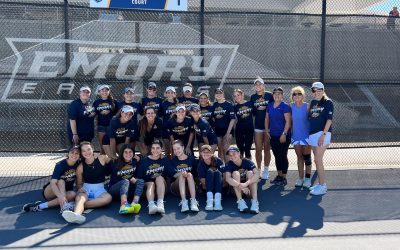when Coaches apologize
His behavior was atrocious.
The visiting team’s coach was yelling at the top of his lungs after every call. He questioned players’ calls. He questioned officials’ calls. He shook his fists at my players.
Finally, I calmly asked him to “chill out.” He lashed back, shouting, “Don’t tell me how to coach!” When he finally left our courts, I was beyond angry at how his bigger-louder-stronger swagger overshadowed everyone and everything else at a match that was supposed to focus on student athletes.
That was Friday.

On Saturday I received an unexpected email.
“I want to apologize,” he wrote. “I acted badly yesterday because I feel like an imposter coaching female athletes. I wanted to prove myself by beating a respected coach. The truth is that I really look up to you. Yesterday I lost sight of that because I desperately wanted to prove that I can coach women as well as men.”
I was shocked by his apology — and his explanation. My anger cooled as I realized his condescending behavior resulted from insecurity. He couldn’t help that he was bigger, louder, and stronger than the women surrounding him. What he could help was how he had misused his physical advantage to hurt others – and hurt his reputation.
This wasn’t the first time I had coached against bigger, louder, and stronger male coaches. Some are exemplary role models for their players and colleagues. But too many have ignored, patronized, and bullied me because I am female. Other female coaches relate encounters that make me wince. Such experiences underscore one reason there aren’t enough female college coaches. Whether we want to admit it or not, there are gender differences in coaching. And, no one seems to have designed an effective professional development course on how to address those differences.
All of that made me think about the power of an apology. It also affirmed my long-held belief that all coaches need an experienced coach to help them recognize and work through their weak areas before they hurt themselves and others.
I call that process “executive coaching,” the newest sector of Bryant College Coaching. Here’s how the encounter above illustrates some of what I intend to provide my executive coaching clients:
All Coaches Need Coaches.
Coaching is already a tough job. That job becomes even tougher when there’s no one to help a coach recognize and avoid common pitfalls, from gender differences (Can I pat the female athlete on the back?) to family concerns (How can I make time for my kids when I’m on the road?)
All Coaches Need Confidentiality.
I’ve purposely changed the details of this encounter because few coaches can publicly confess vulnerability. Admitting weaknesses can jeopardize jobs.
All Coaches Need Accountability.
Just as we confront our players about blind spots, coaches should be confronted when they do something that reflects badly on their profession, reputation, school or team.
All Coaches Need Grace.
Competition brings out the best and the worst in us. And if we’re honest, many of us are struggling with all the demands of our jobs. Like our players, we need both confrontation and forgiveness.
The Bottom Line
There is power in an apology. It can lead to career-changing conversations. But as any coach will tell you, recognizing a mistake is just the first step to building skill sets. Ready to build some skill sets of your own? Contact me!
All the best,
Coach Bryant





